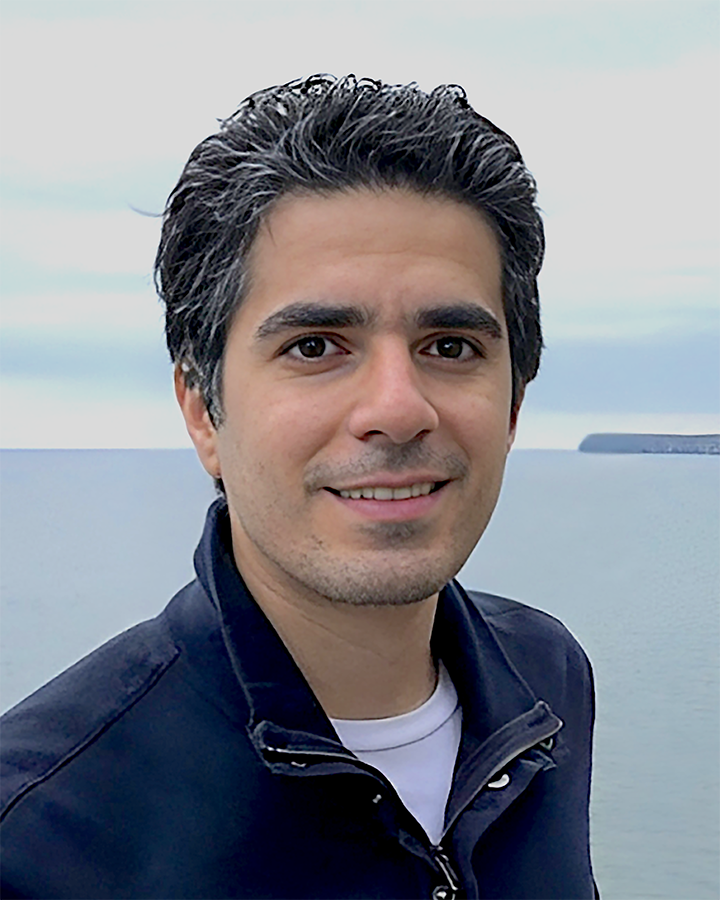 Abdollah Shafieezadeh awarded Fulbright U.S. Scholar Award to South Korea
Abdollah Shafieezadeh awarded Fulbright U.S. Scholar Award to South Korea
Abdollah Shafieezadeh, Lichtenstein Professor, Department of Civil, Environmental and Geodetic Engineering, College of Engineering, has been awarded a Fulbright U.S. Scholar Award to research “Strategic Infrastructure Risk Management: Using Value of Information to Inform Resilience Decisions” in South Korea. From August 2024 – May 2025, Shafieezadeh will examine a novel approach that quantifies the benefit of reducing risk assessment uncertainties during natural hazards. The project strives to empower stakeholders to make informed decisions about where and how to invest in resilience measures effectively.
Shafieezadeh will also integrate real-world case studies while teaching the “Infrastructure System Resilience” and “Earthquake Engineering” courses at Hanyang University. Through an examination of the 2017 Pohang earthquake, the courses will bridge theory with practical, on-the-ground challenges.
“This Fulbright project is an exciting venture into enhancing the resilience of critical infrastructure systems against natural hazards, specifically focusing on seaports. This endeavor is not just about managing risks; it’s about thoroughly examining and enhancing how we perceive and handle uncertainties in dynamic environments in the face of natural hazards,” Shafieezadeh explains.
“At the heart of this project is the innovative use of the Value of Information (VoI) methodology, an interdisciplinary research approach that merges fields like engineering, decision sciences, and public policy to address a universal challenge. Traditionally, decision-makers in infrastructure resilience face significant challenges due to uncertainties in risk assessments—uncertainties that can either stem from a lack of data or from the inherent unpredictability of natural hazard events. By refining the assessment frameworks in support of robust decision-making, this research aims to significantly reduce economic losses and enhance the rapid recovery of affected communities following natural hazards,” Shafieezadeh notes. “The innovative aspect of using VoI in this complex scenario has the potential to transform how we understand and mitigate risks in critical infrastructure.”
This research is particularly critical for seaports, which are not only vital nodes in global trade networks but also pivotal during disaster response as logistical hubs for aid distribution. The recent disruptions at major ports highlight the profound impact that natural hazards can have, not just locally but on an international scale. Shafieezadeh directs the Risk Assessment and Management of Structural and Infrastructure Systems (RAMSIS) lab at Ohio State that develops and applies probabilistic risk analysis frameworks to various critical infrastructure systems and their components to assess their reliability and resilience against perturbations.
“By integrating Dynamic Event Trees with Bayesian inference, the project will advance the computational modeling necessary to navigate these complex challenges. This methodology will allow us to simulate different disaster scenarios and their cascading effects on seaport operations, providing a clearer picture of potential outcomes and the value of various mitigation strategies,” Shafieezadeh clarifies.
The broader significance of this research extends beyond the academic realm. It has the potential to influence policy decisions and infrastructure planning. By sharing knowledge and methodologies between the U.S. and South Korea, and disseminating findings through academic and industry channels, this project aims to foster a more resilient global community prepared to face and recover from natural disasters.
“In essence, this research is not just about making our infrastructure safer; it’s about making our societies more resilient and our economies more robust in the face of increasing natural hazard risks. It’s a thrilling prospect to think of how this project could advance the landscape of disaster risk management and resilience planning,” Shafieezadeh explains.
This Fulbright project will advance the collaborative efforts between Ohio State and Hanyang University and therefore enhance academic exchanges, strengthen international ties, and pave the way for a resilient, interconnected future.